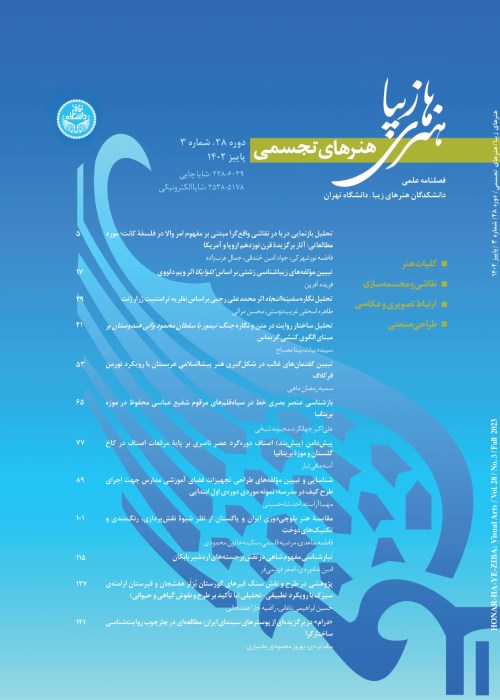Explanation of the process and benefits of service design with participatory design approach
Author(s):
Article Type:
Research/Original Article (دارای رتبه معتبر)
Abstract:
Due to the role of participation in service design, the importance of the concept participatory design approach is increasing in this area. In the literature in this area is mentioned many benefits of using participatory approach in the service design. some of these are: 1. development of different and new services with better values for users, 2. reducing the time of development services, 3. User education, 4. Long-term and better relationships between service providers and customers. But some questions still remained unanswered in the participatory design process in the service design and benefits of this approach ahead in this direction. So the aim of this study is to investigate the process of participatory design in service design projects based on tools and techniques (And possibly achieve a comprehensive process in this area), also to survey the benefits which are originated from the selected tools. The other purpose of this study is to show the importance of co-design in service design process. The research method in this paper is a qualitative analysis based on case study. For this, four projects have been selected in the field of service design from scientific articles as case studies that three of them are based on participatory design and one of them is based on a different approach. The important result of this research showed that we can probably identify a three-step process in all participatory service design projects to introduce it to designers in this area. The steps of this suggested process are: 1.preparation of operative groups 2.collective ideas 3.participatory review and extracting the ideas. The first phase of this three-step process also is diagnosed in three separate steps that are as follows: 1.Selected the type of group or groups participants 2.Recognition of diverse mental models of participants 3.informing participants with methods and objectives of the project. So the inputs in the first stage are different subjective assumptions and outputs are mindfulness participants to the matter. The last phase of this process also has three steps: 1.review 2.completion 3.selection. So at this stage (participatory review and extracting the ideas), Input are diverse ideas and output is a selective idea that is selected with the participation of all participants. Also with a comparative analysis of innovation areas in service design (which are known 7P and are included: Place, Product, price, promotion, Participants, Physical evidence and Process) with participatory design tools, it was found that the use of participatory design tools has positive effects in these areas. Finally, to assess the process proposed in this paper, the process of an execution project and the results of this were evaluated. The authors suggestion for future research in the field of participatory design is to measure the result of the comparative analysis of innovation areas in service design with participatory design tools practically with executive projects to be aware of the positive impact of it and can be compared its influence with the implementation of other similar methods.
Keywords:
Language:
Persian
Published:
Journal of Fine Arts, Volume:23 Issue: 2, 2018
Pages:
119 to 129
magiran.com/p1844270
دانلود و مطالعه متن این مقاله با یکی از روشهای زیر امکان پذیر است:
اشتراک شخصی
با عضویت و پرداخت آنلاین حق اشتراک یکساله به مبلغ 1,390,000ريال میتوانید 70 عنوان مطلب دانلود کنید!
اشتراک سازمانی
به کتابخانه دانشگاه یا محل کار خود پیشنهاد کنید تا اشتراک سازمانی این پایگاه را برای دسترسی نامحدود همه کاربران به متن مطالب تهیه نمایند!
توجه!
- حق عضویت دریافتی صرف حمایت از نشریات عضو و نگهداری، تکمیل و توسعه مگیران میشود.
- پرداخت حق اشتراک و دانلود مقالات اجازه بازنشر آن در سایر رسانههای چاپی و دیجیتال را به کاربر نمیدهد.
In order to view content subscription is required
Personal subscription
Subscribe magiran.com for 70 € euros via PayPal and download 70 articles during a year.
Organization subscription
Please contact us to subscribe your university or library for unlimited access!


